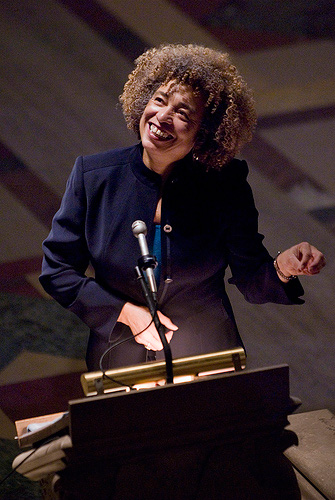SECTION 03
Black Feminism
These changes in black politics were both supported and challenged by the work of black feminist organizations in the latter part of the twentieth century. Although black women activists for generations had challenged such perceptions of gender inferiority, an explicitly critical ideological current of black feminism did not develop until the late 1970s. Initially, some black women attempted to distance themselves from the issues raised by the growing white feminist movement, arguing that blacks as a racial category were subjected to greater oppression than white females. Others argued that black women were subjected to a particular form of sexual exploitation that was rooted within the experience of slavery and Jim Crow segregation. However, these women were also critical of the sexism of black male leaders, which they deemed destructive to the goals of black liberation.
The decisive turning point in black feminist critique occurred in the years 1979-83, as a rich and intellectually diverse body of literature, socio-political essays, and activist organizations developed. One of the most controversial of these writers was Michele Wallace. Before the age of thirty, Wallace authored a widely read manifesto condemning sexism within the black movement— Black Macho and the Myth of the Superwoman , published in 1980. Wallace argued that all political and economic power was based on a gender division, and that this notion of “macho” would prevent black men from true liberation. Black women were exploited both by race and gender, many times by the same black nationalists that were attacking racism. Despite her tendency to oversimplify complex issues, Wallace’s manifesto forced the African American community to address issues of power, liberation, and what freedom would mean for ALL black people. Wallace’s publication sparked a myriad of other intellectuals to address issues of the complex interplay of race, class, and gender. Another important feminist scholar, bell hooks, suggested that racial, gender and class oppression created a structure of domination, which the system’s victims helped perpetuate. Her insistence that social change must involve a detailed and critical reevaluation of the self and community challenged black activists who all too frequently sought empowerment without dealing with issues of how that power could be oppressive to other marginalized groups. Other women like Angela Davis, Nell Irvin Painter, and Audre Lorde contributed to raising awareness of the confluence of issues of women and black people.
The majority of young black women found encouragement and reinforcement in the writings and public careers of such prominent feminists, who raised issues with practical relevance for other women. A group of black feminist writers, artists and intellectuals formed the Combahee River Collective in 1974, a collective that sought to articulate a black feminist theory and practice. Combahee, like other black feminist organizations such as the National Black Feminist Organization (NBFO) and Black Women Organized for Action (BWOFA), helped unify an agenda of often disparate needs and concerns. By the early 1980s, it had become increasingly difficult for male leaders and intellectuals to dismiss the demands of women within their own formations, or to assert that gender oppression was irrelevant in the black community. The illusion that only males should make policy decisions was shattered by the dynamic examples of black women, who consistently were at the forefront of political and social reforms. Black female politicians, writers, lawyers, and social workers continued to make gains in their fields, all the while pushing for a more expansive goal of what black freedom would constitute.


